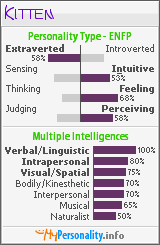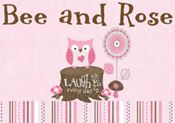My sister, like my mother, is a self-described tree-hugging liberal. Over the past several years she has preached the gospel of "think globally, act locally". She applies this principle to everything, including grocery purchases. As for me, I didn't care where my produce came from as long as it had the label "USDA Organic".
That was my feeling until I read Barbara Kingsolver's Animal, Vegetable, Miracle. Yes, it's great to live in a society where we can get bananas year-round, but, as Ms. Kingsolver asks, have we ever thought about what it took to get them into our markets? The hours of poorly-paid labor that it took to harvest these golden-yellow bunches? The big companies that make millions for its executives yet fork over little for those who do the actual work? The barrels of petroleum that it took to bring the lovely fruit to the local Stop and Shop? They had me at petroleum!
I was already aware of the pesticide residues that are on conventionally grown produce, but was not as much aware of the cost of transportation that is used to get our lovely bananas to the stores. This, as I stated in my last post, was what frightened me about the products in my home, in this case, food.
However, as I continued to read, I found a fascinating portrait of one year in the life of harvesting fresh produce, and it left me feeling empowered. I could feel the gratification that Ms. Kingsolver and her family felt when they harvested bushels of potatoes, the joy when the asparagus was ready to be picked, the wonderful description of a truly home-grown Thanksgiving--especially the tale of the pumpkin soup baked in a pumpkin tureen. Imagine the worst possible thing that could happen once it's placed on the table, and there you have it.
Animal, Vegetable, Miracle also portrays the Hopp-Kingsolver family's ventures in poultry raising and, eventually, slaughter. I feared that this would offend vegetarian readers, but Ms. Kingsolver chronicles the slaughter efforts with sensitivity and honesty. Yes, she did slaughter roosters and turkey, but her poultry was fed an organic diet and was allowed to roam free, unlike the mass-breeders of poultry today.
What I admired most about Ms. Kingsolver's narrative was that she advocated buying locally, organically, and humanely without being preachy about it. Had she written with such a tone I would not have enjoyed this book. Normally, if I like a certain book, I will sit with it for hours, fully reading the whole thing. This book, however, was like a rich dessert; I wanted to savor it slowly, and not want it to end.
There is a list of websites and articles at the end of the book that provide further information. I have since found several local produce farms near me, as well as a beef-raising farm, that I intend to investigate soon.
One more thing--there is a very charming chapter that is about cheesemaking, along with a recipe for mozzarella that comes from the New England Cheesemaking and Supply Company. I visited their website yesterday and found a cheesemaking kit for purchase.
Now I know what to get my tree-hugging mother and sister for Christmas.
Sunday, July 8, 2007
Subscribe to:
Post Comments (Atom)


































1 comment:
My sister just gave me the kit for my birthday. I can't wait to try it! I was just snooping around to see if anyone else had used it.
-Someone else's Treehugging Sister
Post a Comment